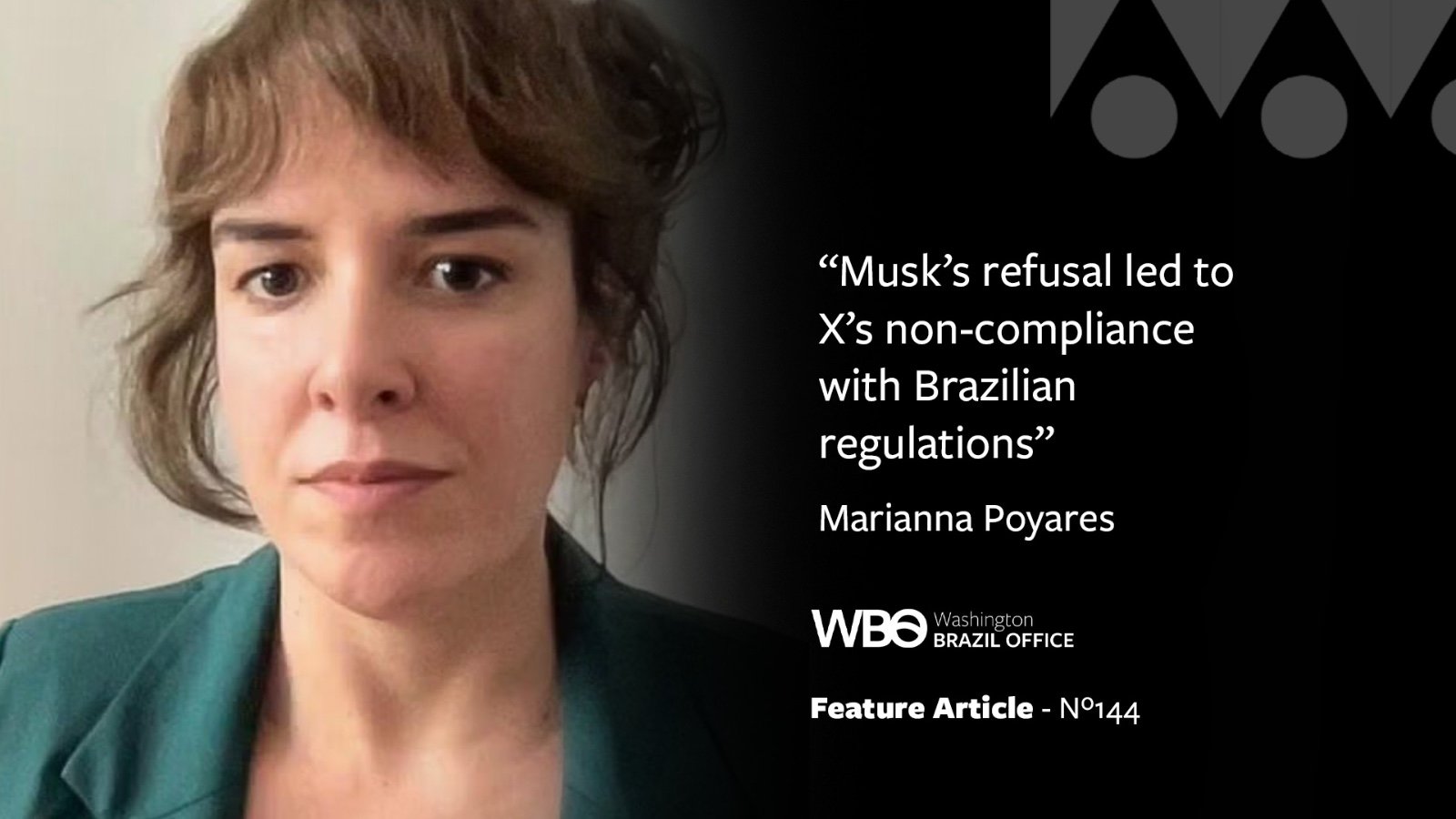A republic of princes – on unregulated tech
Marianna Poyares works at the intersection of tech, ethics, and human rights. She is currently a Fritz Fellow at Georgetown's Center on Privacy and Technology. This article was written for issue 144 of the WBO weekly newsletter on November 22, 2024. To subscribe to the bulletin and receive it for free, enter your email in the field below.
Only a few months ago, Elon Musk suffered what seemed to be a personal defeat at the hands of the Brazilian judiciary. In light of federal investigations concerning voter disinformation in Brazil, X was required to close several accounts identified as misinformation superspreaders. Following Brazil’s Marco Regulatório da Internet, social media platforms must actively moderate content and are held liable if they fail to do so. Musk, a strong supporter of the former Bolsonaro administration, took upon himself the task to smear Justice Alexandre de Morais, in charge of the investigations. On X he repeatedly called Morais a communist and Lula’s watchdog. He pressed the point that the Justice was, in fact, curbing dissent and endangering freedom of speech in Brazil. Musk’s refusal to abide by Brazilian regulations led to X’s non-compliance and the platform was completely shut down in Brazil in a matter of weeks. After ranting at an empty audience, X stakeholders, hurting over the loss of one of its main markets, started to pressure Musk to allow the company to make the necessary changes to comply with Brazilian regulations. The positive outcome was heralded as a victory for the Brazilian government. I believe the outcome has a deeper significance than being a triumph for Lula in a staredown with Musk: it stands as an example of a victory of democratic governance over the whims of a prince.
Following Trump’s victory, Musk’s nomination as co-head of the newly-established Department of Government Efficiency came as no surprise considering the relationship between the two. Nonetheless, it generated an overall concern over the capture of the federal government by private interests and the erasure of existing regulatory procedures and user protections regarding Big Tech. This is a particularly grave concern considering that the new Trump administration will inherit from Biden the largest ever tech-powered surveillance infrastructure at the disposal of Homeland Security. Biden accelerated the Department of Homeland Security’s transformation into a tech-heavy agency. Currently, the largest contracts established between the DHS and the private sector are for data analytics, data brokerage, and surveillance software and hardware. While the overall number of immigrant detention centers was reduced, ICE’s “Alternatives to Detention” program, under which immigrants with pending court proceedings (including asylum seekers) are placed under permanent surveillance through the use of ankle bracelets or smartphone apps, jumped from about 40,000 users under Trump I, to 200,000 under Biden. And it is purported to be expanded to provide surveillance on up to 3 million users, given a Request For Information recently issued by the federal government. Likewise, DHS recently signed a 2 million contract with Israeli company Paragon to acquire spyware capable of reading encrypted messages sent through smartphone apps such as Signal.
Under the guise of national security it has been unclear who could be targeted by these technologies. Potentially anyone characterized as a “threat to public or national security.” The public’s belief that certain surveillance capabilities exercised by the government target exclusively non-citizens has been proven to be false on multiple occasions. Technologies such as biometric facial recognition or even data mining run on platforms that contain private and sensitive data of immigrants and citizens alike, as Georgetown’s Center on Privacy and Technology American Dragnet report shows. DHS’s surveillance infrastructure has grown massively with little oversight and fewer corresponding democratic controls, mainly because it appears in the guise of an apparatus that will not be applied to citizens–or at least not to “good” citizens. “Not me”. Like Glenn Lingon’s billboard America/Me visible from New York City’s High Line, concerns over loss of freedom or even persecution seem to quickly dissipate once enough trust is put into the belief that one is not the intended target.
When it comes to tech and government, it seems that an imperative to trust, to have faith in the god will of powerful others, has replaced conversations over democratic protections, regulations, and safeguards, either with regard to specific authorities, public figures, or even in one’s relative privileges. The union between national security and big tech has evaded public scrutiny for far too long. Efforts to create clear mandates, democratic oversight instruments, and systems of accountability and liability for federal agencies and tech companies in the United States have been largely insufficient. And the few sources of authoritative oversight, on display in Google’s antitrust case, are likely to be soon shut down. Tech enjoys the opacity provided by a pervasive ideology of self-proclaimed objectivity and unbiased analysis, both when it comes to popular imagination and its lack of regulations. There is too little transparency over parameters, systems of capture and quantification, data markers, data brokering, and algorithms. And there is almost no accountability for their purported efficacy and accuracy. Regardless of the administration, a republic governed through unregulated tech is like a republic of princes where holding on to power entails creating a balance between the curbing of the social and individual freedoms, and the people’s relative happiness. However, as Machiavelli would not let us forget, for princes, it is better to be feared than hated.


